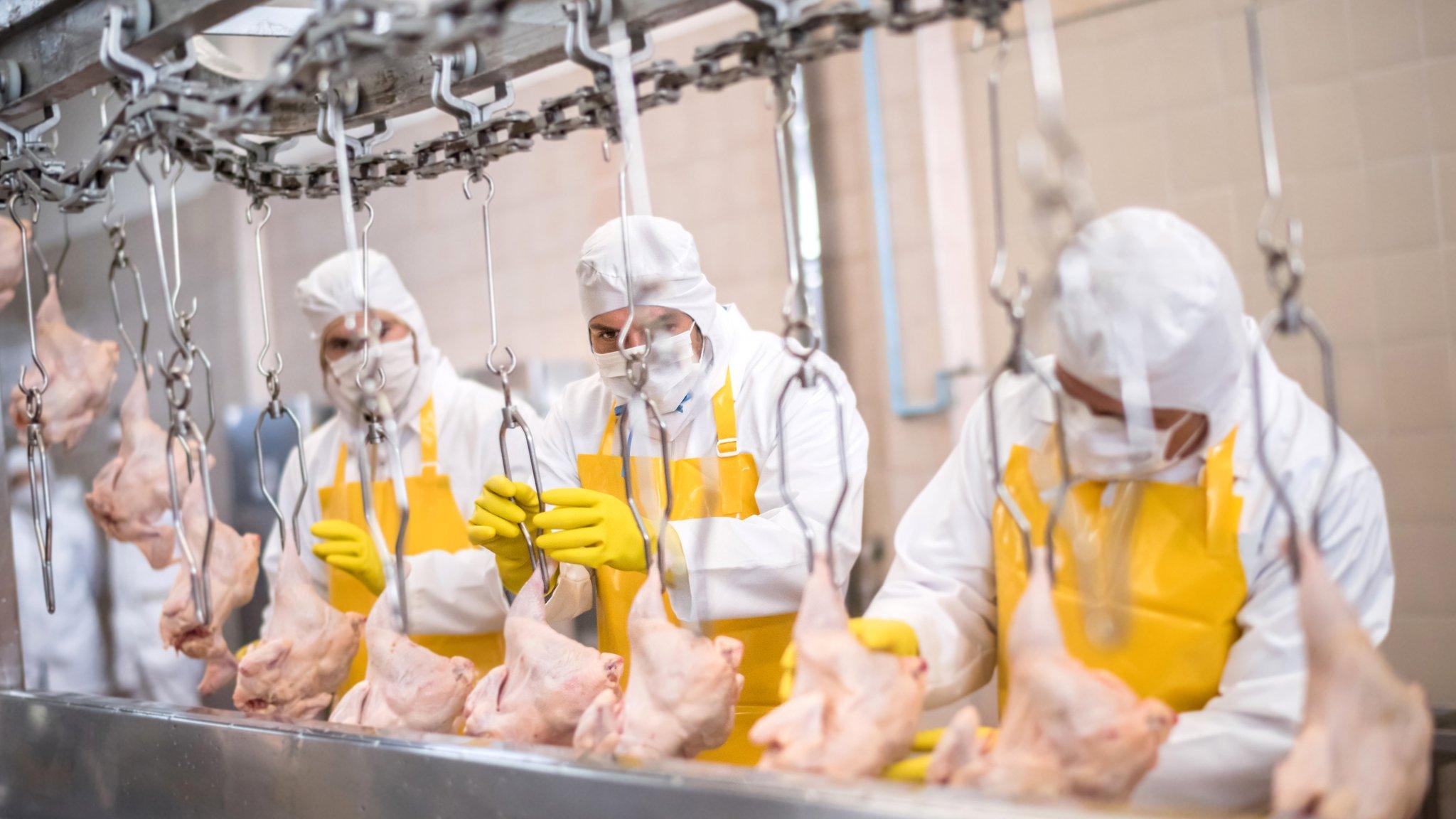Coronavirus: Norfolk gets 'enhanced support' after Banham Poultry outbreak
- Published
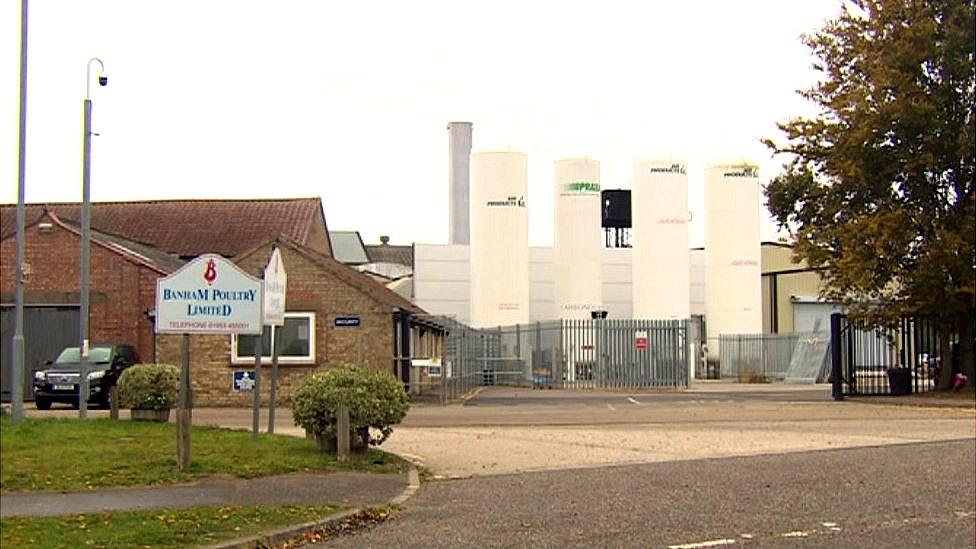
The Banham Poultry factory in Attleborough has been partially closed after an outbreak of Covid-19 among workers
A county that found itself battling a Covid-19 outbreak at a poultry plant is getting extra government support.
More than 100 cases have been found among staff at Banham Poultry in Attleborough in Norfolk.
Norfolk has been made an "area of enhanced support" to limit the virus.
Health officials said they could now "obtain swifter data and testing". On Tuesday it was revealed 48% of people linked to the outbreak had not been traced.
Public Health in Norfolk and Norfolk County Council said the support from the government was welcomed.
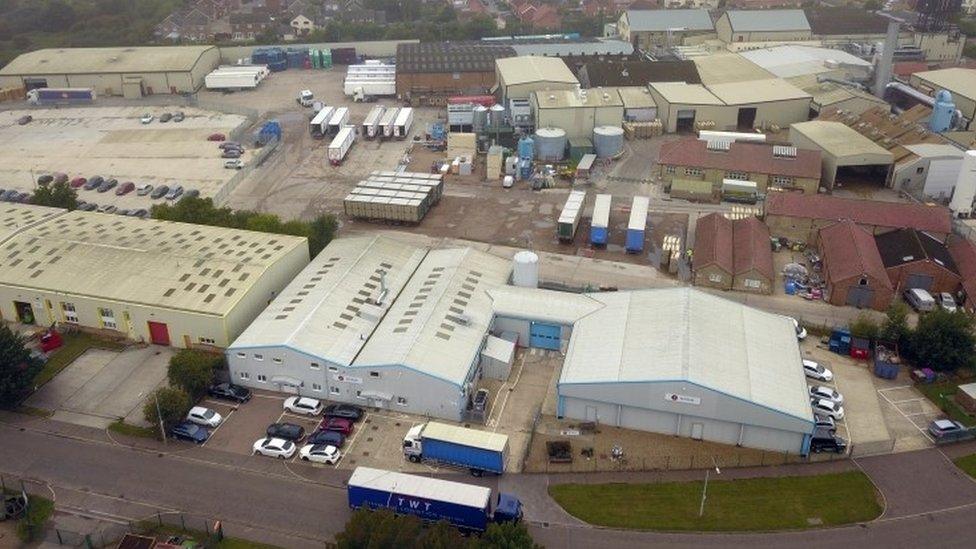
Banham Poultry has been in business in Attleborough since 1965
Director of public health, Dr Louise Smith, said: "Although cases have risen in Great Yarmouth, Breckland and Norwich, we have always been clear this would happen, as Banham cases fed through into the figures. They are all linked to workers and their households.
"We can now draw on additional government support to obtain swifter data and testing, to support our local efforts."
On Tuesday, Dr Smith said the 48% yet to be traced was a "relatively high proportion".
She said the council was "bringing in a company to redo the contact tracing" to "have another go at reaching out to people".
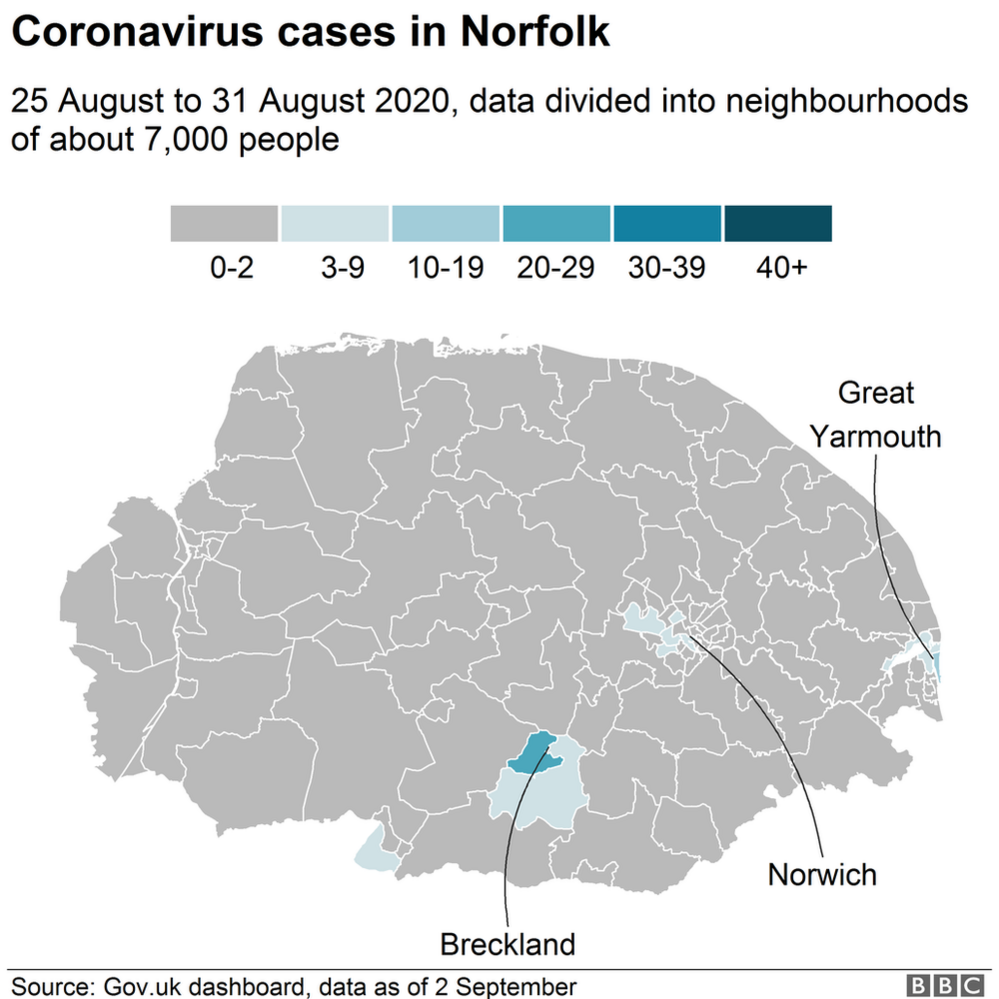
The Banham outbreak has seen 119 positive cases out of 1,784 tested.
The plant has been partially closed since 27 August, at the point when 80 workers tested positive.

What is an 'area of enhanced support'?
Public Health England publishes a weekly watchlist of local authorities, external as part of its surveillance report of coronavirus infections.
It has three categories for local councils.
An area of concern is the lowest level, where local officials take targeted actions to reduce infection numbers.
An area of enhanced support is described as being at medium or high risk of intervention and means having a detailed, nationally agreed plan in place with additional government support.
An area of intervention is the highest level, where there is a "divergence" between the local measures in place to control the spread of coronavirus and national restrictions across England.
A local lockdown could be the next step if area of intervention support fails to stem the infection rate. The first local lockdown was introduced in Leicester at the end of June.

On Tuesday, the Conservative MP for Mid Norfolk, George Freeman, said he was concerned the phone-based contact trace system was missing too many people.
A Department of Health spokesman said: "NHS Test and Trace is working and is breaking chains of transmission - over 325,000 people, who would otherwise be unwittingly spreading the virus, have been contacted."
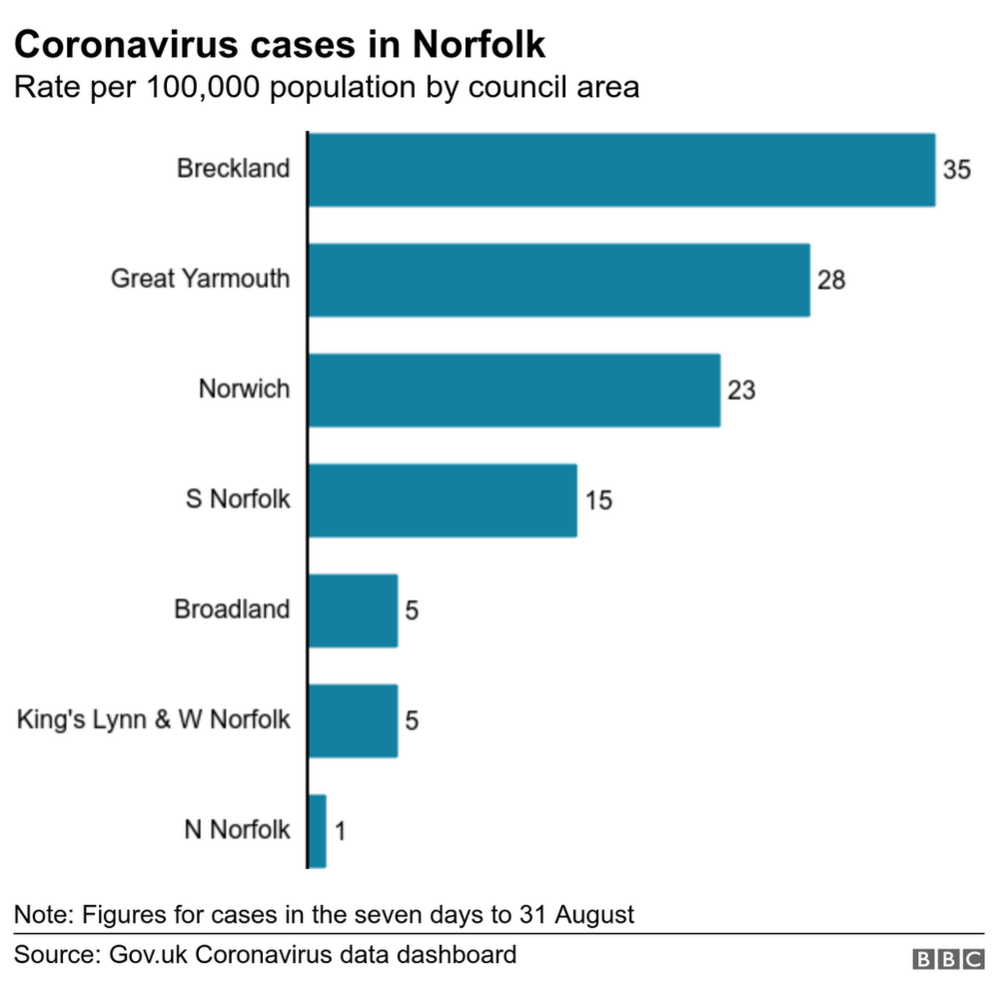
Banham Poultry is Breckland, with workers also living in surrounding districts

A SIMPLE GUIDE: How do I protect myself?
AVOIDING CONTACT: The rules on self-isolation and exercise
LOOK-UP TOOL: Check cases in your area
MAPS AND CHARTS: Visual guide to the outbreak
VIDEO: The 20-second hand wash

Find BBC News: East of England on Facebook, external, Instagram, external and Twitter, external. If you have a story suggestion email eastofenglandnews@bbc.co.uk, external
- Published1 September 2020
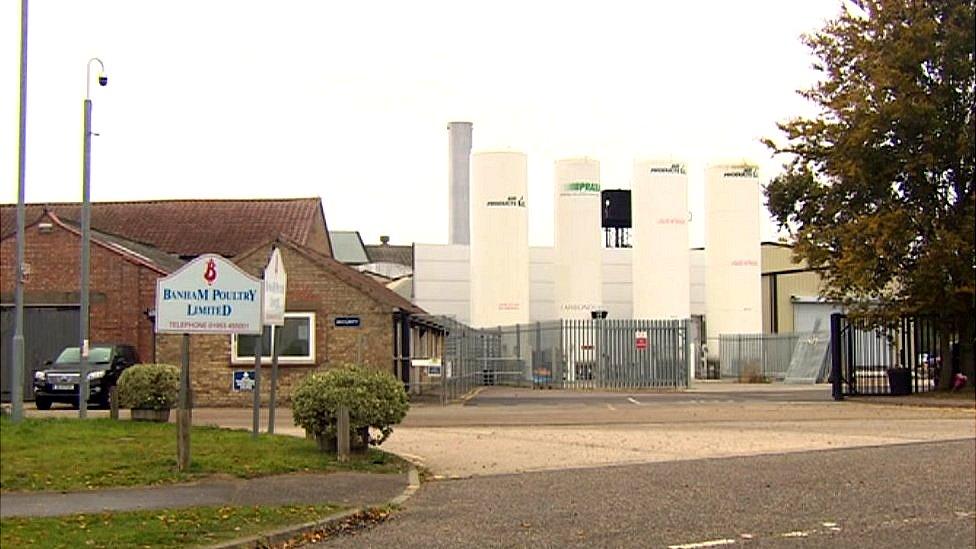
- Published31 August 2020
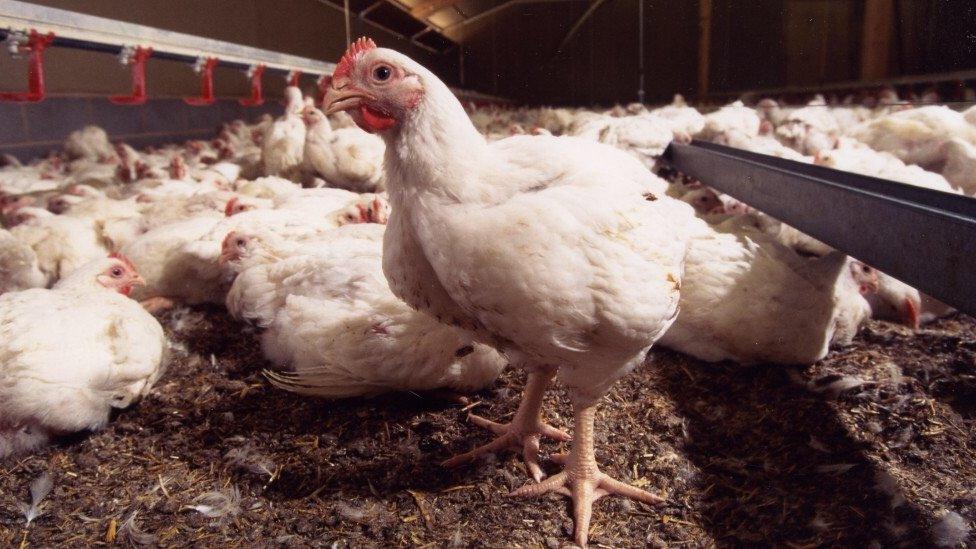
- Published27 August 2020
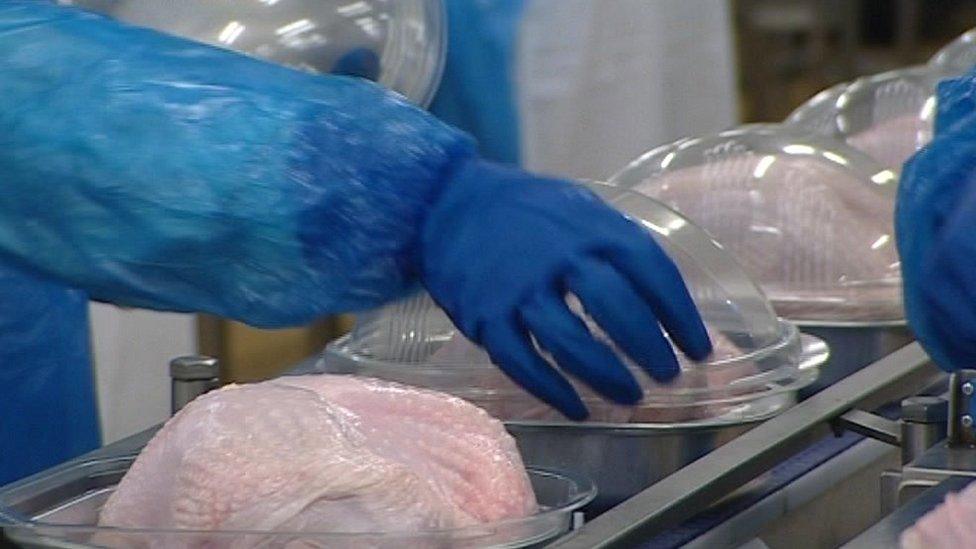
- Published24 August 2020
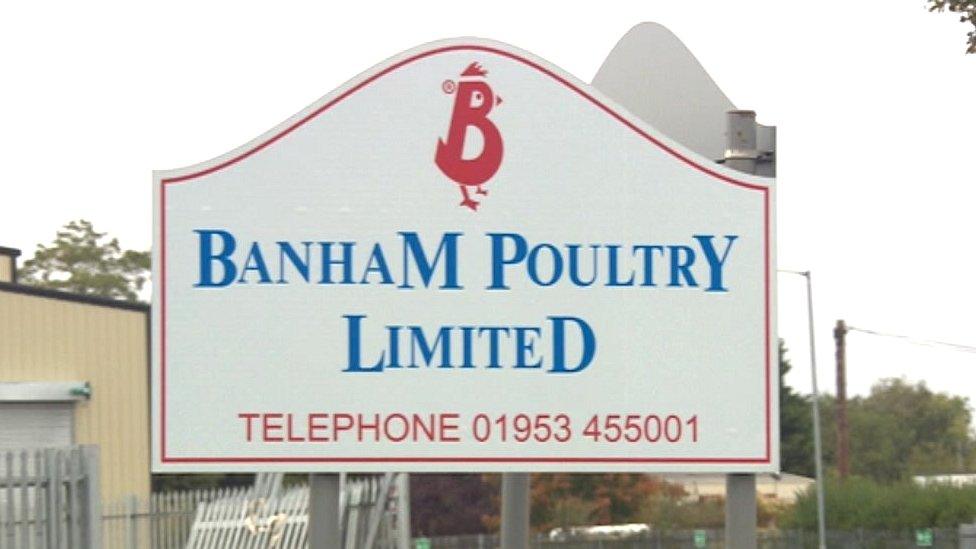
- Published26 August 2020
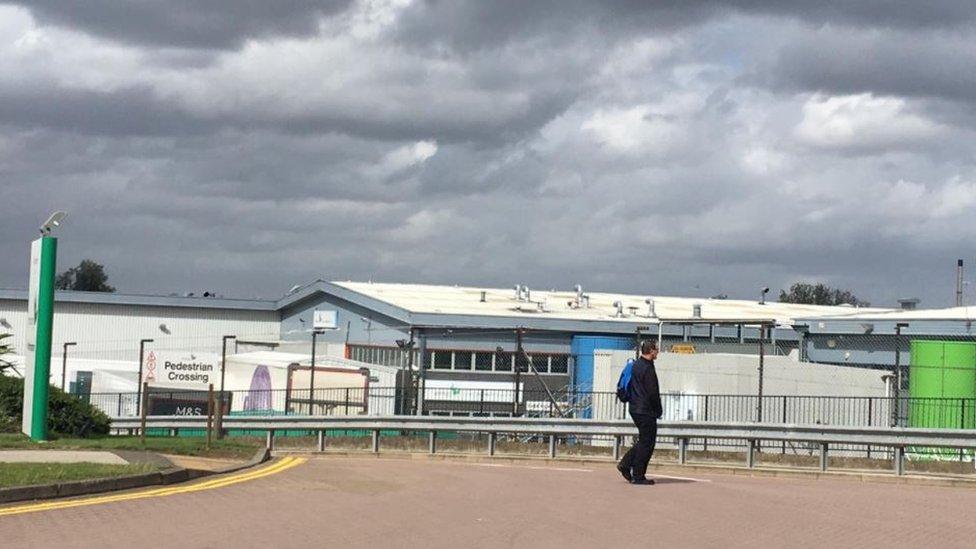
- Published23 June 2020
